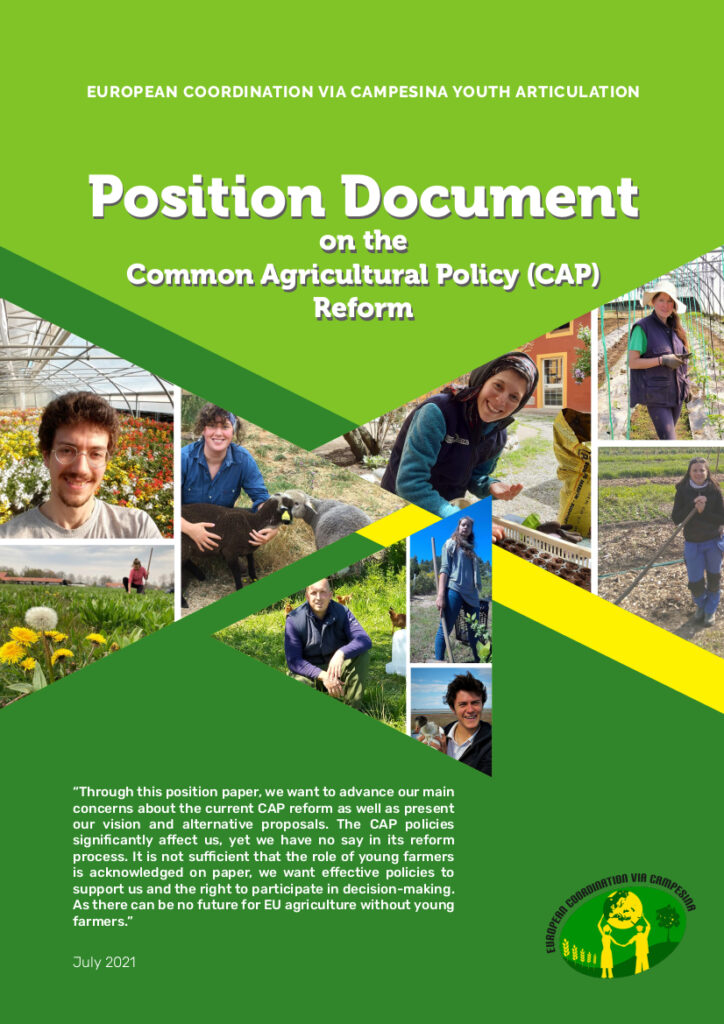Reformed Common Agricultural Policy neglects real needs of peasant youth: ECVC

The Youth articulation of the European Coordination Via Campesina (ECVC) has expressed concerns that the reformed Common Agricultural Policy (CAP) will continue to neglect the real needs of young farmers, and in particular small, agroecological farmers.

In a position paper released on 13th July, ECVC Youth Articulation points out that the CAP continues to miss one of its main objectives: facilitating the entrance of new farmers.
Overall labour input in EU agriculture has been falling and only 11% of all farm holdings are run by farmers under 40.
According to a recent evaluation study conducted by the European Commission, the CAP contributes to the maintenance of existing farms rather than the creation of new ones. Medium and small-scale attempts by young people and new entrants to start a new activity fail due to lack of support (finance, training, advice) and incentives.
The Youth Articulation of ECVC has called upon EU member states to allocate sufficient budget to young farmers as part of the National Strategic Plans (NSP) and to increase the maximum level of funding beyond 3% of the overall CAP budget. “We expect strong monitoring, accountability, and transparency of youth-policies at the national level to ensure bothcompliance and the reproduction of good practices.”
ECVC also points out that the logic behind the allocation of CAP financial support is unacceptably unjust: based on ownership of land and capital, it prioritizes big and wealthy farms with capacity for big-scale investments while neglecting medium and small farmers who adopt more environmentally and climate-sound solutions (es. reduced inputs and use of second hand material).
This capitalist logic contradicts the vision of the “Farm to Fork’’ (F2F) Strategy, which states the need to support agroecological and small-scale farmers towards the creation of more sustainable and shorter food chains. It also contradicts the objectives of the European Green Deal (EGD), which has ambitious objectives in terms of emission reductions and social equality.
Since the beginning of the CAP reform in 2018, ECVC has stressed that the proposal does not respond to the needs of farmers or society and will make it very difficult to achieve a strong EU Food and Agriculture Policy. Written almost 3 years ago, this CAP does not reflect the new realities or needs that have been highlighted by the COVID-19 pandemic, particularly regarding the ecological and social crises, food security, resilience and food sovereignty in Europe.
Download the position paper here
Also Read: The CAP reform agreement betrays the commitments made by the EU
